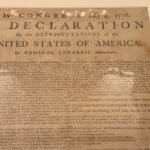Introduction
For the general election that will take place in January 2024, Bangladesh is getting ready. The opposition Bangladesh Nationalist Party (BNP) claimed that the results of the country’s most recent election, which was held in 2018, were manipulated, stirring accusations of injustice. According to Foyez (2023), the BNP has advocated for the establishment of a caretaker administration that is deemed “neutral” in order to ensure a free and fair election. Pressure is mounting on the government to guarantee that the upcoming election is free and fair in light of the issue surrounding the 2018 elections’ fairness. What the Bangladesh Election Commission is doing to guarantee a free and fair election in 2024 will be discussed in this article.
The role of the caretaker administration in Bangladesh elections
Regarding the caretaker government’s involvement in Bangladeshi elections, there has long been discussion. The Bangladesh Nationalist Party (BNP), the biggest opposition party, has been advocating for the election to be held under a caretaker government. However, Sheikh Hasina’s Awami League administration has ruled continuously for about 14 years after the caretaker government arrangement was eliminated in 2011 (Foyez, 2023). Since the removal of the caretaker government system, the opposition claims that there have been no free and fair elections in the nation.
The BNP and those who support it think that the Awami League will exploit the government apparatus to further its political goals in the event of a caretaker government. However, the Awami League insists that the call for a caretaker government is invalid.
The administration is under pressure to make sure that the next election is free and fair given the unpredictability surrounding the caretaker government system. Weekly protest marches by the BNP have drawn tens of thousands of participants, who have demanded the establishment of a “neutral” caretaker government to oversee the next general election in order to guarantee a free and fair election (TBS News, 2023).
The opposition party’s proposal for a caretaker government has been turned down by the Awami League administration, which claims that the constitution forbids the formation of such a government. A free and fair election has also been ensured by the administration’s actions (Hoogstra & Macdonald, 2023). For instance, the government installed electronic voting machines, or EVMs, to guard against vote tampering. In addition, the government has taken action to guarantee the Election Commission’s independence and impartiality.
The power of the Election Commission in Bangladesh
The Election Commission of Bangladesh is a critical component in ensuring free and fair elections in Bangladesh. Giving the Commission additional authority, as it is in responsible of ensuring national law and order during voting, can help ensure a free and fair election. After the election is declared, the Election Commission generally controls the nation’s law and order, thereby rendering the government impotent (Foyez, 2023).
Elections must be free and fair, and other activities related to election administration must be accomplished by the Election Commission, a body created by the Constitution. In addition to supervising election workers and administering polling sites, the Commission is in duty of declaring and publishing election results, addressing complaints and disputes from voters, and increasing public awareness and readiness (TBS News, 2023).
The Commission ensures the correct application of the law by addressing election disputes and complaints. Given that women constitute half of the population, the Commission is still striving to guarantee that women are effectively included in the entire process of establishing a sustainable democratic state.
The commitment of the current Awami League Government to a free and fair election
As promised by Bangladesh’s Awami League government, a free and fair election would be held in 2024. Nonetheless, in order to secure a free and fair election, the opposition party, namely the Bangladesh Nationalist Party (BNP), has insisted on the formation of a “neutral” caretaker administration to oversee the next general election. The BNP and its supporters argue that a caretaker administration is required for free and fair elections because the Awami League would otherwise use the government infrastructure to strengthen its campaign. The Awami League, on the other hand, maintains that the request for a caretaker administration is illegitimate. In view of the volatility surrounding the caretaker government system, the administration is under pressure to ensure that the next election is free and fair. To combat vote-rigging, the government deployed electronic voting machines (EVMs) and has worked to ensure the Election Commission’s independence and impartiality (Rahman, 2022). Foreign observers have been invited by the government to monitor the election, and the commission is still able to carry out its tasks with total independence, legitimacy, and effectiveness. The European Union has refused to send a comprehensive election observation team to Bangladesh, citing a lack of “necessary conditions,” prompting the opposition to assert that the voting will be unfair (Islam, 2023).
The importance of inviting unbiased foreign observers to watch the election
It is critical to engage neutral foreign observers to examine the procedures in order to ensure a free and fair election. Election observers play an important role in ensuring the integrity of electoral processes and are an effective tool for improving election quality. Election observers can help to avoid manipulation and fraud, as well as promote and protect voters’ civil and political rights and expose problems with these activities if they develop (Rahman, 2022). When observers offer positive ratings, it boosts trust in the democratic process and promotes the legitimacy of administrations that come to power following elections.
The reasons for watching an election vary substantially among different types of viewers. Election administration laws are the attention of neutral observers, while political party monitors aim to ensure that election management does not negatively effect their campaigns. Because they have no stake in the outcome of the election, trustworthy unbiased observers are driven to improve the integrity, transparency, and efficacy of the electoral process. Data-driven approaches are routinely used by neutral international observers to improve election integrity and transparency, which can improve voting experiences (Paul, 2023).
The objective process of impartial election observation entails the systematic collecting of data by professional observers in order to analyze major aspects of the election and produce a report on the degree to which the election was credible, peaceful, and fair. Based on facts and data, dependable observers validate the critical work being done by those at the vanguard of our democracy. Ordinary people, neighbors, and fellow voters are examples of observers who are not involved with any political party. Throughout the election cycle, teams of observers are stationed at election offices, polling booths, and other satellite locations where election activities are carried out. Every team notes general observations and anything important they come across, in addition to obtaining data on the election process using a standard set of questions. The material is then collated, reviewed, and condensed into reports that are made accessible to the public on a regular basis (Macdonald, 2023).
The assumption that various observer groups are not equally competent and objective is confirmed by results from a large-scale, nationally representative experiment conducted in Tunisia. One noteworthy result is that the Arab League observers, who have received international condemnation for the poor quality of their election observation, were perceived as biased and fairly competent locally, which contributed to their increasing legitimacy.
The US has restricted visas for Bangladeshis who have undermined or are complicit in undermining the country’s democratic election process. These individuals include members of the political opposition, the ruling party, and law enforcement professionals. The US is committed to supporting Bangladesh in conducting peaceful, free, and fair elections. After US Secretary of State Antony Blinken issued a warning regarding visa restrictions, visa requirements were enforced over a four-month period. Washington has indicated that it supports “free, fair, and peaceful national elections” in the South Asian nation of 160 million people (Miller, 2023).
Key facts, why people should believe the next election will be free and fair
The following are some key reasons why people should believe that Bangladesh’s upcoming election would be free and fair:
- The Bangladeshi Election Commission has been working to ensure that future elections are free and fair. As part of its continuous attempts to improve the election process, the commission chose electronic voting machines (EVMs) as a method of combating vote tampering (Rahman, 2022).
- The administration has been working hard to ensure the Election Commission’s independence and impartiality. Furthermore, the government has promised to address and stop any criminal conduct or election tampering.
- According to the authorities, foreign observers are welcome to witness the election. The presence of international observers can help to make the electoral process more transparent and trustworthy. The United Nations and other countries, including the United States, have requested the Hasina government to arrange the next national election in a free and fair manner (TBS News, 2023).
- The younger generation wishes to live in a political environment that promotes human rights, democracy, openness, and accountability for leaders. This shows that there is a growing demand in Bangladesh for free and fair elections.
- Bangladesh has gotten closer to having free and fair elections, according to a US expert. Although there is still work to be done to create an environment conducive to free and fair elections, steps in the right direction have been accomplished (Macdonald, 2023).
- Bangladesh’s government has vowed to take steps in order to resolve and prevent unlawful actions and election tampering. Based on this guarantee, the government looks committed to ensuring that the election process is trustworthy and transparent.
Moreover, the administration of the Awami League has rejected the opposition party’s call for a caretaker government, which they argue is vital for a free and fair election. This is an important factor to keep in mind.
The role of foreign countries in ensuring a free and fair election
Foreign nations may make a significant contribution to ensuring free and fair elections in other countries. Foreign countries can help in the following ways:
- Contributing financial and technical assistance to the election process: International governments might provide financial and technical assistance to the electoral processes of other countries. The “United States Agency for International Development (USAID)”, for example, has supported free and fair elections in a number of countries, including Tunisia, Afghanistan, and Ukraine. In addition, the US has demanded “robust” public involvement in Bangladesh’s political process and next election (Rahman, 2022).
- Potential solution in voting process: One potential solution may be to assign election observers to monitor the voting process and record any irregularities or breaches. To monitor the electoral process and record any anomalies or violations, foreign election observers may be sent in. To witness the general elections in Nigeria in 2019 and provide suggestions for future enhancements, the European Union, for instance, sent a team to monitor the process. Several nations, including Sierra Leone, Liberia, and Cambodia, have supported free and fair elections through the United Nations (USAID, 2023).
- Providing political parties and election officials with assistance and training to guarantee they comprehend and abide by election laws and procedures: Foreign nations are able to offer assistance and training to political parties and election officials to guarantee they abide by election rules and procedures. This can support maintaining the election’s credibility and transparency.
- Using diplomatic channels and public statements to advocate for free and fair elections: Foreign governments have the option of using these channels to support free and fair elections. As a result, governments may feel under pressure to provide a transparent and genuine voting process (TBS News, 2023).
- Assisting civil society groups that promote voter education and participation: International states can offer help to civil society groups that promote voter education and participation. You may ensure that voters can participate in the election and are informed of the electoral process by doing so.
- India’s support for the present Awami League administration is regarded critical to the government’s survival. Despite the fact that Bangladesh and India’s relationship has been widely referred to as “the golden era” for the previous 14 years, the government is under pressure to ensure that the upcoming election is free and fair in light of the concerns surrounding the caretaker government system (Riaz, 2023).
It is crucial to remember, however, that foreign governments must take prudence when intervening in the domestic affairs of other countries. They must collaborate with other nations to retain their claim to sovereignty while ensuring a fair and legitimate electoral process.
Conclusion
There is pressure on the administration to guarantee that the next election is free and fair in light of the debate surrounding the 2018 elections’ fairness. Future free and fair elections will be ensured by the actions taken by Bangladesh’s Election Commission. In order to prevent vote manipulation, the government used electronic voting machines, or EVMs. To further protect the Election Commission’s independence and impartiality, the government has taken action. International observers are welcome to cover the poll, according to the administration. Offering the Election Commission financial and technical support as well as sending election observers to monitor the polls are two ways that foreign nations may contribute to ensuring a free and fair election. The approaching election in Bangladesh must be free and fair since it will have a significant impact.
The Author is a think tank executive leader in the higher education and healthcare vertical. By passion a voting right advocate, human Rights defender and a political activist. A Harvard Kennedy School Alumnus who deeply care about the transparent public policy and its correct implementation in government
References
Foyez, A. (2023, October 17). Rohingya refugees in Bangladesh appeal to donors for more food aid. Radio Free.
Hoogstra, D., & Macdonald, G. (2023, September 22). New Bangladesh Survey: Hasina Remains Popular but Opposition Support and Public Discontent Are Growing Rapidly. Council on Foreign Relations.
Islam, A. (2023, July 24). Bangladesh: Can EU pressure ensure fair elections? DW.
Macdonald, G. (2023, June 6). Three things to watch as Bangladesh’s national election season heats up. United States Institute of Peace.
Miller, M. (2023, September 22). Taking steps to impose visa restrictions on individuals involved in undermining the democratic election process in Bangladesh. United States Department of State.
Paul, R. (2023, May 25). Bangladesh says will take steps address any interference in elections. Reuters.
Rahman, S. A. (2022). Bangladesh PM Announces General Elections in January 2024. VOA. Retrieved October 25, 2023, from
Riaz, A. (2023, September 25). Bangladesh election 2024: What role will India play? Atlantic Council. TBS News. (2023, September 27). Next election will be free, fair and credible: PM Hasina tells civic reception in NY.
USAID. (2023, September 25). Supporting Free and Fair Elections | Democracy, Human Rights & Governance | U.S. Agency for International Development.
Disclaimer: These are the personal opinions of the author.





